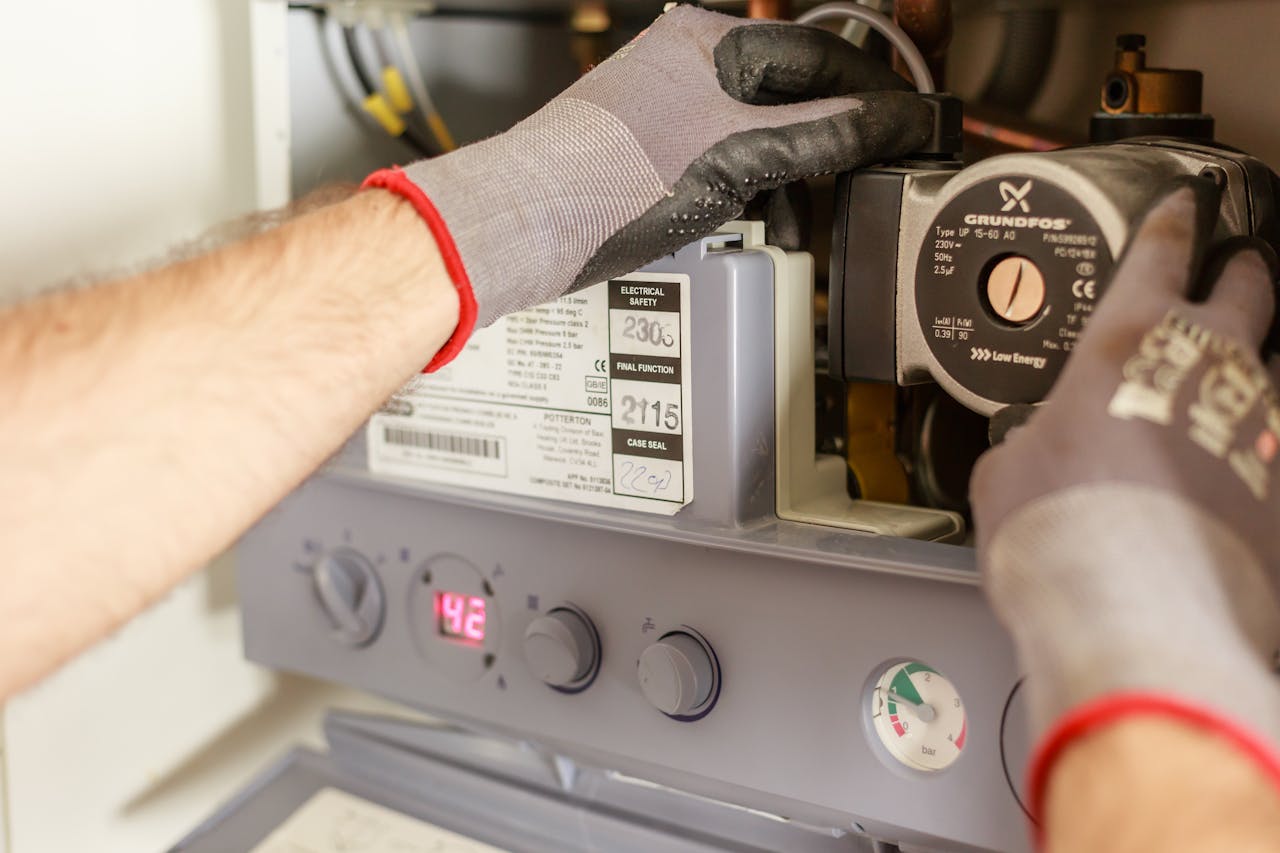As the world continues to strive towards a more sustainable and renewable future, biomass boilers have emerged as a favourable alternative to fossil fuel energy. These eco-friendly systems utilise organic materials, primarily wood pellets, to generate heat. But what should you consider when installing one of these novel boilers in the UK countryside?
This article will delve into crucial factors such as the quality of biomass fuel, the cost of installing and running a biomass boiler, and the potential benefits of this renewable energy system.
Lire également : Which eco-friendly insulation options are ideal for older UK houses?
Understanding Biomass Energy
Before embarking on your journey to install a biomass boiler, it’s crucial to familiarize yourself with the underlying concept. Biomass energy is derived from organic matter, including wood, crop waste, and even dedicated energy crops. The biomass is then converted into heat or electricity, often through combustion in a boiler.
Unlike fossil fuels, biomass is a renewable energy source, meaning it can be replenished naturally over time. Biomass boilers are designed to use this fuel efficiently and produce minimal carbon emissions, making them a desirable solution for the environmentally conscious homeowner.
A lire en complément : What are the key features to look for in a UK-compatible smart doorbell?
Choosing the Right Fuel for Your Biomass Boiler
When it comes to the fuel for your biomass boiler, wood is the most common choice. This can come in the form of logs, chips, or pellets, depending on your boiler type. However, the quality of the wood you use will greatly impact your system’s performance and efficiency.
Ensure that the wood you use is well-seasoned and has a low moisture content. Wet or green wood will not burn as efficiently, leading to a significant drop in heat output and an increase in carbon emissions. Additionally, the use of poor quality wood can cause damage to your boiler over time.
Pellets, in particular, are a popular choice because of their uniform size, low moisture content, and high calorific value. They are also easy to store and transport.
Cost Considerations for Biomass Boilers
Biomass boilers will generally cost more than traditional gas or oil-fired systems. However, the long-term savings on heating bills and the potential for earning Renewable Heat Incentive (RHI) payments can offset the initial outlay.
When calculating the overall cost, it’s essential to consider not only the price of the boiler itself but also the installation fees, the cost of the fuel, and any ongoing maintenance and repairs. You also need to factor in the cost of a storage area for your fuel, particularly if you intend to use bulk quantities of wood chips or pellets.
Benefits of Biomass Heating Systems
One of the main benefits of installing a biomass boiler in your countryside home is the potential for significant savings on your heating bills. Compared to conventional heating systems, biomass boilers are often more efficient and less expensive to run.
In addition, the UK government’s Renewable Heat Incentive (RHI) scheme provides financial incentives for homeowners who use renewable energy to heat their homes. This can further offset the initial costs associated with installing a biomass boiler.
Environmental Impact of Biomass Boilers
Biomass boilers are widely recognised for their environmental benefits. When sourced sustainably, biomass fuel can help reduce carbon emissions compared to fossil fuels. The carbon dioxide released during combustion is offset by the amount absorbed by the plants during their growth, resulting in a carbon-neutral cycle.
However, it’s important to ensure that your fuel is sourced responsibly. Ideally, the wood should come from managed forests where new trees are planted to replace those cut down for fuel. This ensures that the biomass cycle remains sustainable and doesn’t contribute to deforestation.
Remember, installing a biomass boiler is a significant investment, not just in terms of finance but also in our planet’s future. By considering these factors, you can make an informed decision that not only benefits your home, but also contributes to the global effort towards renewable energy and carbon neutrality.
Biomass Boiler Considerations in the UK Countryside
In the context of rural UK living, a biomass boiler can offer numerous benefits. However, several key considerations must be taken into account.
The boiler’s size and output power need to match your home’s heat and hot water demand. Opting for a system that is too small could leave you shivering in the colder months, while an oversized unit can consume unnecessary fuel and power. Therefore, consulting with a heating expert who can evaluate your home’s needs and recommend an appropriate boiler size is advisable.
Fuel storage is another significant consideration. Wood pellets, logs, and chips – the main forms of biomass fuel – require dry and clean storage spaces to prevent moisture absorption and rotting. You’ll need a dedicated area to store your fuel, preferably close to the boiler for easy access.
The availability of biomass fuel in your local area is also essential. Consider the ongoing cost and delivery logistics for wood pellets, chips, or logs. You want to ensure that you have a reliable and affordable source of biomass fuel to keep your heating system running.
Lastly, it is crucial to consider the ease of boiler maintenance and service availability in your area. Biomass boilers require regular maintenance to keep them running efficiently and safely.
A Sustainable Future with Biomass Boilers
Biomass boilers provide a sustainable solution to home heating needs, particularly in the UK countryside. By using locally sourced biomass fuel, these heating systems help to reduce reliance on fossil fuels and contribute to the fight against climate change. This makes them a smart choice for homeowners looking to lower their carbon footprint and embrace renewable energy.
While the initial cost might be higher than conventional gas boilers, the long-term benefits are significant. Financial savings on heating bills, potential income from the Renewable Heat Incentive, and the environmental benefits of a lower carbon footprint make biomass boilers an attractive option.
In addition, biomass boilers provide a degree of energy independence, securing your heating against fluctuating fossil fuel prices and supply disruptions.
However, it’s crucial to consider the practical aspects of owning and operating a biomass boiler. From the initial sizing and installation to fuel storage and ongoing maintenance, these are significant factors that can affect your biomass boiler experience.
In conclusion, while the transition to renewable energy sources like biomass is an undeniable part of our sustainable future, it’s important for each homeowner to consider their unique circumstances. It’s not just a matter of installing a biomass boiler; it’s about making a long-term commitment to sustainable living and renewable energy. With careful planning and consideration, a biomass boiler can be a viable and beneficial option for heating your home in the UK countryside.






